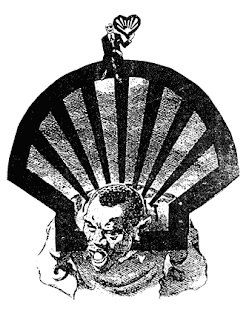Africa holds mineral wealth with diverse commodities that are sought after the world over. In the diamond industry, local communities miss out on the benefits. The clandestine market for buying and selling the precious stones — particularly diamonds mined by the garimpeiro (informal miner) — is largely dominated by foreigners: Senegalese, Chinese, French, Eritreans, Guineans and Congolese intermediaries, who are not invested in lifting up the local communities.
In diamond-rich parts of Africa, the revenue generated from mineral extraction does little to improve the quality of life for the people who live in those countries. Instead of uplifting communities through mineral riches, many people find themselves stuck in a vicious cycle of exploitation and abuse.
In the Democratic Republic of Congo, said African Diamond Council President M'Zee Fula Ngenge, there's a history of conflict brought about by "pervasive greed, postcolonial secessionism, as well as a customary erosion of public sector accountability and government management."
Ngenge believes only a select few get to directly benefit from the hard labor of miners, keeping the workers barely surviving in order to continue exerting power over them. Regional conflicts not only add to this mix of control and illicit oppression but actually benefit the big names in the diamond trade, allowing them to set the going rate for labor according to how desperate miners are to make money.
This scenario of conflict in Congo is similar in other African countries with large mineral riches as well, said Ngenge, highlighting that many nations in the region are "deliberately targeted [by the diamond industry] for their political and social instability."
What Congo, Angola, Mozambique and many other mineral-rich countries in Africa have in common is the fact that there are two markets for the exploitation of mineral resources: there is a formal extractive industry, which is subject to at least some level of oversight, and a clandestine one, which is dominated by mining corporations.
The African Diamond Council indicates that in the case of smuggled rough diamonds of African origin, an estimated 28% to 32% of revenue out of the total African diamond production is lost.
"So the 'developed world,' ...is certainly guilty of turning a blind eye, ear and mouth to this kind of omission," Ngenge said.
Another expert in the trade described how "Sometimes diamonds are stolen from mines in Angola and transported to the DRC, and then exported to Dubai with documents stating that these diamonds come from the DRC, while originally they are from Angola."This way, custom tariffs and other fees are evaded, the provenance of the gems is concealed, labor standards are circumvented and the dynamics of an entire industry built on the principle of supply and demand are manipulated.
Rafael Marques de Morais, an Angolan author of "Blood Diamonds," believes the multilateral Kimberley Process Certification Scheme, established in 2003, is being abused as a pretense to appease critical voices. According to Marques de Morais, the protocol amounts to little more than window dressing to make it look like something is being done about reducing the impact of the looting and transfer of mineral resources from poor countries, while in truth it safeguards the interests of countries buying the precious stones.
"This is the problem with the Kimberley Process — it acts according to the strategic interests of some countries," Marques de Morais told DW. Locals in diamond-rich communities in Africa, he said, are far from seeing any benefits as the rocks are taken to international diamond hubs like Antwerp and Dubai. "It is enough to say that the diamonds are presented as clean to justify everything. But they are not clean because they continue to be violently exploited."
Why Africa bleeds diamond revenues – DW – 02/20/2023
Further Reading
CLASS WARFARE: AFRICA'S DIAMOND TRADE (class-warfare.blogspot.com)


